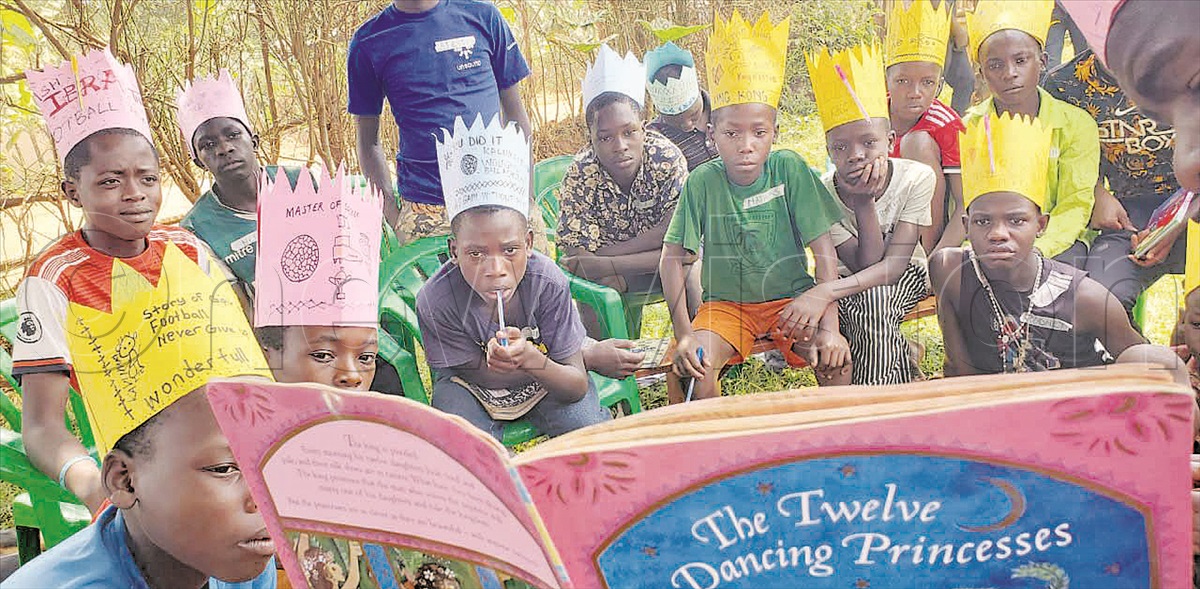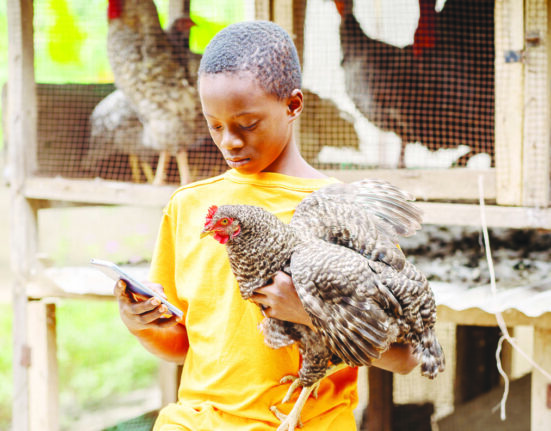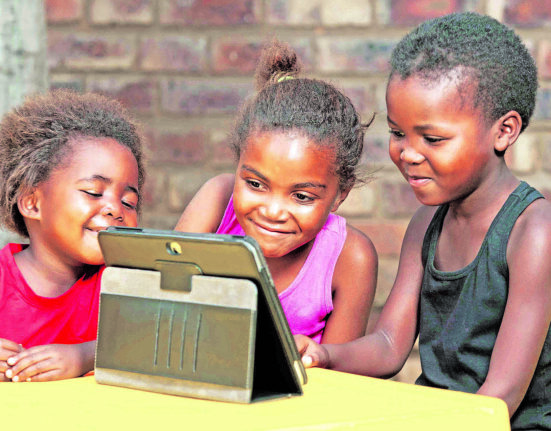(This article was first published in the New Vision on October 12, 2022)
By Victoria Nampala
At 11 years, Afua Awori was in Primary Four class, but could hardly read a sentence written in English. Frustrated at Awori’s inability to read, her parents moved her to another school.
Three years later, Awori, who now attends Tara Primary School in Kanyogoga, one of the slums of Kampala, does not only read, but is also steadily building her English language vocabulary.
Unlike Awori’s previous school which lacked reading materials, Tara, a government-aided primary school, has exposed this 14-year-old girl to lots of books, which has helped her learn to read.
“I can now read and understand the exam questions better than before,” she says.
Literature Clubs
Awori is a member of her school’s literature club, which is run by Art of a Child, a non-profit community-based organisation, to give children in slums and other areas outside Kampala access to literature. The organisation, which also runs free mobile and community libraries, lends books to literature clubs.
“I read under the guidance of mentors from this organisation who read out loud during reading sessions,” Awori says.
In schools like Tara, which have formed partnerships with this organisation, the children are guided through reading sessions that last between two and three hours on selected days. The organisation says it selects the schools and communities to run their interventions, depending on its needs.
Under the instruction of staff from the organisation, the children are taught to read words, sentences, pronunciation and rhymes, among others. The children are also handed short story collection books and picture books, novels, touch-and-feel books, comic books, dictionaries, and poetry books. The organisation signs memoranda of understanding with schools, which it visits on selected days a week to help the children read.
Susan Tusabe, the charity’s team leader, says the children are lent books on the days she and her colleagues visit the schools. The organisation takes back the books from the schools on the next visit and lends the children new pieces of literature.
The clubs were first set up in schools in Kampala suburbs, such as Kibuli, Namuwongo, Kansanga and Ggaba in 2013 before spreading to Kanyogoga in Namuwongo, Katongole and Kisenego in Bbunga Kawuku later. Outside Kampala, the clubs run in some schools in Masaka, Gulu, Kabarole and Wakiso districts. In some
A child reading a book at a
literacy centre run by Art
of a Child in Masaka
communities, the charity has set up libraries. One such centre was recently set up at Lugala in Wakiso district. A 2015 World Bank report shows that learning materials are inadequate in Ugandan schools. Its earlier study showed that there was one book for 30 children in Ugandan schools.

Mum Clubs
But the organisation is not working in schools alone. Every Saturday, the organisation, which is supported by Book Aid International and Rotary, as well as like-minded organisations, holds mobile libraries in slums around Kampala.
Through this arrangement, the organisation supplies the mothers with books and teaches them to read to their children. The mothers, who have been organised into groups, are lent books to read to their children.
Christine Nabaye, a member of a mum’s club in Ggaba, a Kampala suburb, says every week, she meets with her fellow mothers at a member’s house to learn to read and tell stories to their children through riddles and folklore. The mothers are encouraged to read to their children at least once a week.
“I read to my children to help them improve academically,” she adds.
Aloysius Mukasa, the MP for Rubaga South, adds that this intervention has not only improved the way mothers communicate with their children in his constituency but has also given them an opportunity to contribute to the education of their children.
“Mothers can now even express themselves better in English during meetings,” he adds.
A 2019 World Bank study shows that learning outcomes among Ugandan children were influenced by the availability of reading materials at home.
Community Libraries
Jessica Auma, a mum club member in Namuwongo, says the intervention has also equipped mothers who could not read with basic literacy skills.
Remmie Bishanga, an official from the organisation, says they plan to set up community libraries in Kabarole and Gulu to reach more children and adults.
“We want these centres to have early childhood development centres to introduce books through play to children,” she adds.
Justine Kiyimba, the director at Nambi Sseppuuya Community Resource Centre in Iganga, says they would like to provide literacy promotion services to more children and adults, but are held back by the lack of funding.
In the meantime, Awori says the intervention has equipped her with the confidence to pursue his dreams.
“I read books on belonging, hope and courage to enable me to pursue my dreams. I hope to be as successful as the superheroes in the books,” she adds.

Regional Picture
A child is considered competent in reading at the Primary Two level if they can read a short story and respond correctly to at least one of the two comprehension questions based on the content of the story, according to Twaweza East Africa, a regional educational research organisation.
Twaweza’s 2019 report shows that most Ugandan children do not achieve Primary Two-level reading competence until reaching Primary Six, due to, among others, a lack of reading materials. It reveals that only 39% of Ugandan Primary Five children have this competence level.
Creating Book Lovers
The literature organisation, which is currently operating clubs and mobile libraries in 15 schools and five communities, says it has so far reached over 2,000 children. Some of the schools include St. Henry’s Primary School, Kawuku Parents Primary School, Tara Primary School, Imani Academy, and Corner Stone Primary School in Kampala.
State minister for higher education John C. Muyingo urged more children and adults to embrace the clubs and community libraries.
“We are aware of the activities of the Art of a Child. We have also established libraries in various districts and stocked them with books. We urge people to utilise them,” Muyingo said.
Geoffrey Kirya, a teacher at Tara Primary School, says the clubs have created confidence among learners and is hopeful that the intervention will help the children improve their academic performance.
Aloysius Mukasa, the MP for Rubaga South, notes that the intervention has the potential to grow the reading culture.
Why Read To A Child
- Basis for academic success
- Helps you bond with your child
- Improves child’s concentration
- Spurs creativity and imagination
- Builds love for reading
- Grows child’s cognitive skills
- The child develops communication skills









Leave feedback about this